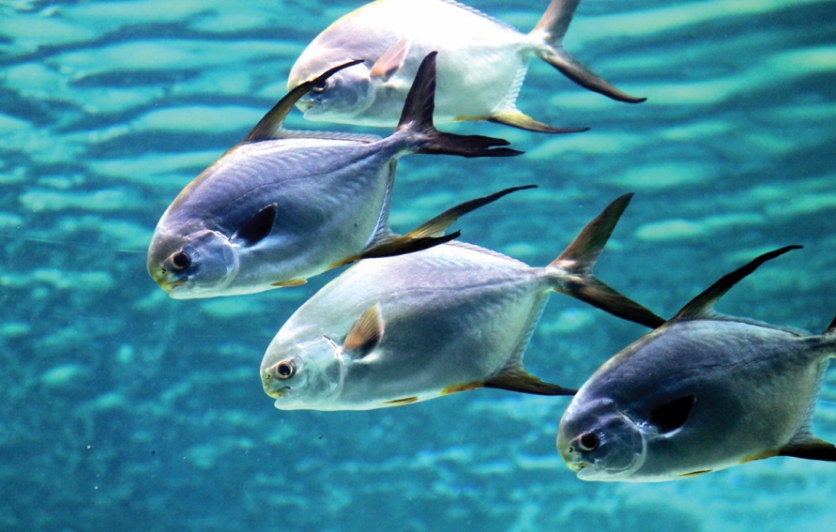Pompano at Aquaco, Fort Pierce

Joe Cardenas changed careers in his mid-30s when his job in banking had lost its luster and he was looking for a challenge. “What industries in Florida are young? What industry do I want to invest in that’s a challenge?” Aquaculture got his attention and he spent nine months researching the business. “We’re surrounded by salt water,” he says. “That’s the biggest potential here,” he says. He looked for a product where there wouldn’t be huge competition and landed the Florida pompano, a native fish that migrates annually from Florida to the Northeast United States.
Market analysis showed that seafood distributors and chefs want a tasty, 1-¼-pound fish that they can get consistently, not just seasonally. Pompano fit the bill. “People like a whole fish,” Cardenas says. “Here, we could raise the perfect plate-sized fish. We don’t have to filet and process it. We can harvest it in the morning and deliver in within 24 hours.” A member of the jack family, pompano is a fattier fish with buttery undertones, a rich taste, a small flake and a sweet, mild flavor. Chefs will pan-fry it, sear it or grill it – it doesn’t have scales. Once you crisp the skin, it’s delicious.”
Pompano made business sense, too. Raising it from egg to harvest weight takes just nine months. Unlike grouper or snapper – “all head” – pompano provide a good yield, and the farm could control their size at harvest, spending less on feed. They could also create a year-round alternative source to commercial pompano fishing with no impact on wild populations.
Cardenas found a piece of land in Fort Pierce to set up the recirculating aquaculture facility. After two years, they “learned the recipe for this species” and added bigger capacity tanks. Today, they are harvesting weekly, selling both wholesale and retail.
“One of our biggest selling points is how fresh it is,” he says. “Most commercial fishermen go out for a week or two, so wild-caught fish might be in the cooler for a week. In land-based aquaculture, fish are harvested on Monday and shipped the next day.” Because of U.S. and Florida regulations, consumers know they’re getting safe, clean seafood. “The Florida Division of Aquaculture wants to know where our water is coming from and where’s it’s going. That’s not the case elsewhere in the world. Our water quality is better than the ocean – there are no plastics.”
Because of that focus on the environment, Cardenas says farmed fish is safe when consumers focus on its origin. “When people wonder about domestic vs. imported farming, make sure it’s domestic.”
Find it
Communities Near You
What’s happening near you
Haymakers for Hope fight to ‘Knock Out’ Cancer at Charity Boxing Event
Fillmore Miami BeachMiami Beach



